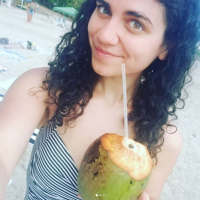Search the Community
Showing results for 'alcohol'.
Found 17,501 results
-
O, I'll buy us a caffeine free ice tea and we'll be square. Not bubbles, caffeine or alcohol. Right? [emoji12] Sent from my SM-G930V using BariatricPal mobile app
-
Also think about this. Does anyone ever tell an alcoholic , go ahead 1 drink won't hurt you, ??? If you are an addict, you can't have just one. Sorry for all my post. I am just so passionate about beating this. I thought of going to AA , but realized they serve donuts......
-


Travel Overseas - 4months post op
biginjapan replied to VooLivre2017's topic in POST-Operation Weight Loss Surgery Q&A
I definitely do! I travel a lot, in fact, I went to Germany when I was a month post-op. Although I never thought of myself as a big foodie when I travelled (I've always had a sensitive stomach so have had to be careful), it's so much different now as I am now painfully aware of what I can't eat. There's a whole lot more can't than can. :-( Even though I never went totally off plan, I did have a couple of small breakfast sausages, a bit of bread here or there, and lots of cheese (the only source of protein that was available wherever I went). I ended losing about a pound a day on that trip, so maybe my body liked the change up in foods. It was also the first trip I've been on where I hadn't had any alcohol. I'm very much still in the "zone", that is, I don't crave food, I rarely feel any real hunger (and if I do it may just be gas/acid), and I have no problem passing over what I used to eat and drink all the time. But I do feel like you sometimes, I mourn food, I miss being able to eat what I want, to go with friends and not worry if there will be something on the menu that I can mostly eat, etc. But I never want to go back to where I was, so eventually I hope the mourning period will pass. -


Travel Overseas - 4months post op
VooLivre2017 posted a topic in POST-Operation Weight Loss Surgery Q&A
I was worried about what to eat while traveling through Indonesia, so I packed some Isopure protein in my luggage, and hoped for the best. Turned out ok considering. I ate grilled chicken, tiny bits of rice, eggs, veggies, no noodles, no spicy stuff. Twice I hid food in napkins and stuffed it in my purse so people wouldn't look at me funny. (What have I become?) The locals kept asking if I didn't like the food! I know maybe I should not care but I did. I don't regret the surgery but I realised how much I mourn food, and my ability to eat different kinds, especially while traveling. Feels like it took some of the fun away. Couldn't drink alcohol either. I don't have a question. Still have some adjustments to make going forward & wanted to post my thoughts to see if anyone can relate. -


Only 37 pounds in 4 months- what am I doing wrong? Please help-
Joules007 replied to Finding Erika's topic in POST-Operation Weight Loss Surgery Q&A
Finding Erika sorry for the late reply! I see that there have been some great responses and tips so far. As for my programme here in the UK please see below: A healthy diet There are five main food groups and a healthy diet comprises a mix of them: Protein foods – such as meat, fish, eggs, beans – include 2-3 60-90g (2-3oz) portions per day. You must be particularly careful to chew meat, chicken and fish thoroughly before you swallow – the recommended bite size is the size of a 20p piece. Eat the protein part of your meal first. Milk and dairy – choose low-fat cheese and limit amount to 30-60g (1-2 oz). Choose skimmed milk and low fat yogurt varieties. Fruit and vegetables – try to have 4-5 portions per day. A small glassful of unsweetened fruit or vegetable juice counts as one portion. Carbohydrates – bread, potatoes and cereals. One small portion of 60-90g (2-3oz) at each meal will be fine. Fatty and sugary foods – use a small amount of olive oil for cooking and replace puddings with a low fat yoghurt or stewed fruit. As mentioned before, beware of the soft calorie-laden foods such as chocolate, sweets or ice cream (see section on dumping syndrome). Fluids Choose non-carbonated fluids. Avoid diet and/or regular fizzy drinks. These make you feel uncomfortable and the gas produced by these can stretch the pouch. Your best choices for fluids are water (try squeezing some lemon into water), artificially sweetened, non-carbonated flavoured waters, coffee or tea, herbal teas, clear soups, and diluted 100 percent unsweetened fruit juices. Read labels carefully to be sure your healthy sounding drinks do not contain lots of calories. Do not forget that alcoholic drinks can be high in calories, so moderate your intake. Aim for 10 glasses of fluid a day. Meal ideas for normal diet: Breakfast Coffee or tea or 200ml skimmed milk or 200ml vegetable or fruit juice 1 slice brown bread or roll (toasted) or 50g breakfast cereal 10g butter/margarine or 20g low fat spread 1 portion jam, honey or low fat cheese spread or 50g lean meat or 1 egg Lunch 50g poached fish or 50g meat or 50-75g chicken/ Quorn/ tofu-based product 1 tablespoon risotto or rice or 1 tablespoon mashed potato or 1 small boiled potato 1 peeled grilled tomato or 2 tsp broccoli or carrots or a small mixed salad Evening meal 100g boiled spaghetti with Bolognese sauce, 1 teaspoon Parmesan cheese and 1 peeled grilled tomato Or 3 small slices of low-fat cheese, 1 slice brown bread and a small, non leafy, mixed salad (tomato, cucumber) Or 1 tablespoon tuna or egg salad with diced pickled vegetables, 1 slice brown bread Or 50g baked potato with cheese and ham with1 tablespoon of tomato salad Steps to success: Limit portion sizes for meals to a side plate or about half of a normal portion. Using measuring tools such as food scales to check your portion sizes can help initially. Eat the protein part of your meal first followed by the carbohydrate and the vegetables. Do not eat more for fear of getting hungry later. Remember that it will take time to get used to what your smaller portion looks like. Eat slowly and if you do get hungry later on have a ready-prepared snack such as a piece of fruit or a low-calorie yoghurt. Stop eating as soon as you are no longer hungry. You have to listen to your body’s feeling of satisfaction and fullness; otherwise there is a great risk of you stretching the pouch. Eat slowly, taking 20-30 minutes to complete your meal. Most obese people are used to rushing their meals and, as there is a time delay from stretching the wall of your stomach and it telling your brain you are full, you need to be careful with this one. Try placing your knife and fork down between mouthfuls. Chew foods thoroughly, aiming for 15-20 chews per mouthful. Swallow the food once you have achieved a smooth puree consistency in the mouth. Take tiny bites (cut meat up to the size of a pencil-top rubber) and chew each piece 10–25 times. Stop eating after about 20 minutes and if you are hungry again a few minutes later have a little more. Eat three meals per day –You should be satisfied eating three meals a day without getting hungry in between meals. Beware of developing 'grazing' eating patterns of small snacks throughout the day. Eat healthy, solid food –Many soft foods are high in fat or carbohydrates and as a consequence you may be taking more calories than you should and your weight loss will slow down or stop. Choose solid foods without lots of sauce (e.g. small meal of chicken and vegetables) and you will eat less overall and stay full for longer. Do not drink while eating as you could feel full too soon before you have eaten the right amount of food. So avoid fluids for half an hour before your meals and for one hour afterwards. Do not eat or graze between meals as this will slow down the weight loss. You should not need to eat between meals because of hunger if you are eating three sensible meals per day. Only eat good quality nutritious food (see above). All drinks should be zero calories – Calorie laden drinks, including alcohol, will simply add calories to your daily intake. Women need calcium and this can be obtained from skimmed milk. You should avoid juice, squashes, milkshakes and. fizzy drinks (the gas can also cause considerable pain), Drink adequate fluid between meals as mentioned before. How much exercise should I do? It is recommended that adults should aim to be active daily. Over a week, activity should add up to at least 150 minutes (2½ hours) of moderate intensity activity in bouts of 10 minutes or more. One way to approach this is to do 30 minutes on at least 5 days a week. Alternatively, comparable benefits can be achieved through 75 minutes of vigorous intensity activity spread across the week or combinations of moderate and vigorous intensity activity. I'm using this as a guide but still finding it difficult to eat much (better since I last posted to you) and I struggle to do any exercise (except long walks) because I feel so tired! My hair is thinning so badly as well but I know it will be worth it in the end! [emoji4] -


When did you start puréed food, and solid food?
Jenniferlynangel replied to maddie.bruins's topic in POST-Operation Weight Loss Surgery Q&A
My surgeon had me on clear liquids for the first four days, full liquids for a couple of days, pureed foods for five days, soft foods for a week, then regular foods as soon as I could tolerate the soft foods and get at least 700 calories a day. So I began regular foods about 2 1/2 - 3 weeks after surgery. I haven't had any problems with food -- I just need to be careful of sugar and sugar alcohols, especially on an empty stomach. -
I am a sugar addict but I am treating it like alcohol,addiction...just like an alcoholic cannot have just one beer, I cannot gave just one candy. So I go day by day. I am on day 41 now. Yes once or twice, I did give in and had a piece of candy bug the next day I started over and go day by day. That is the only way I am able to do this. To reconize that each day is z victory. I am also off of bread , pasta, wheat and rice. One day at a yime, one step at a time. My surgery is July. I Want the change...I want the freedom from sugar. It's a conscience choice, to tell myself not that I can't have it but that I don't want it. Sugar addiction is hard to break but it can be done...one day at a time. If alcoholic's can do it. I can do it!!
-
He doesn't do anything with me anymore...im not exaggerating either. We try to have date night but it ends up with him ordering so much food and alcohol that he makes his stomach hurt and we have to go home. He won't go to the theater with me, he barely even eats dinner with the family unless I ask him to. He spends all of his free time in his shop. It's the kids and me going places and doing stuff. He chooses to stay home in his shop alone. We don't even watch our tv shows together anymore. As much as I tell him that I miss him...it doesn't change. He seems sad, depressed, but won't tell me why. He gets excited when we talk about our vacation, but as soon as I mention that maybe we should prepare ourselves for the long walking trails at the state parks...he goes silent. So I leave it alone, change the subject, and get him talking about something else. But that only lasts so long before it's time for kids activities, appointments, gym time, etc. And he chooses to stay out of all of it. I feel like I have lost him. I miss his company.
-


It's finally my surgery day!!!!!
CJ1107 replied to CJ1107's topic in PRE-Operation Weight Loss Surgery Q&A
Oh so the day before me how awesome!!! Yeah I was a bit nauseous too while at the hospital but I used alcohol pads to sniff on when that would happen and they helped me tremendously!! Hope your recovery is going well too!! -


Adult beverages? Alcohol? Drinks?
EmmyJ replied to Amethyst Acinom's topic in POST-Operation Weight Loss Surgery Q&A
My NUT just told me that she doesn't want me having any alcohol until 6 months out, so I don't have a good answer to your question yet -


Adult beverages? Alcohol? Drinks?
Amethyst Acinom posted a topic in POST-Operation Weight Loss Surgery Q&A
I have heard after you get your new tummy that you don't need much to feel a buzz. I am curious what ha been your limit? What did you drink? I'm 6 weeks Post op and would love a glass of wine. Don't judge me please, we're all adults lol I've been very good with holding down food and getting liquids in. I've never had any issues. Thank you! -
Questions about binge eating. Food addiction. History of addiction or alcoholism. Questions about my emotions. It was pretty painless. Took like 10-15 minutes.
-
Tomorrow is my 1 year sleevaversary. Thought I would share what I have experienced over the past year. Fair warning, this was a year in the making, so it's a little long.... I have lost 92 lbs and gone from size 22/24 to 12/14. My Plantar Fasciitis is gone and I can walk for miles. I can wear heels and cross my legs. Shoe size shrank by 1/2 size. I can sit indian style and move a lot better. The interior of my car seems a bit bigger and I just fit into the world better. I lost some hair and now have 3" strands growing back all over my head. I never vomited or had dumping or foamies. I eat very low carb and don't miss carbs one little bit. Truly. I have lots of low carb foods that I LOVE. And I enjoy cooking and eating. People: I have been open about my surgery. I am still saddened to hear so many people who believe negative inaccurate stories they hear about wls. One woman said it causes stomach cancer. It does NOT. The ignorance is real. I have found that most people have made up their minds and they don't want you to confuse them with facts. I do get support from people who know me. And that is what is important to me. I used to want to wear a T-shirt with a before after picture of me a few months ago as a walking billboard for wls, because I was and am so happy with my results, but now I am less apt to share my story because so many people still have a negative mindset when they hear wls, which is very sad because it helps so many people. I actually feel that some people treated me in a more negative way after I told them. Guess I gave them more credit than they deserved. I do think my social interactions are more frequent now. I think I do have more self confidence now, maybe it's because I feel like I look better. I have a turkey neck thing going on that I'm not happy about, and the skin on my upper thighs is a tad saggy. My stomach is a lot better than I thought it would be. Boobs shrank some, but still plenty there. My arms are floppy, and I don't like that, but even so, I love shopping and dressing now. I may be developing a Transference Addiction of shoe browsing/buying. I had to wear ugly "comfortable" shoes for a long time, so I can't tell you how much fun it is to have a few pair of cute shoes that don't hurt my feet. Thank goodness Hubby says I'm not out of control ....yet.... Clothes shopping: Tried to buy everything on sale. I still have some things that are 2X or 3X that I need to replace. The clothes buying can add up fast. It doesn't help that my Husband actually encourages shopping. Who does that? I think he knows just how much I enjoy it now, where I hated shopping before. Nothing.... nothing looked good before. Alcohol: I haven't tried any yet. Going on vacation in a few weeks and might try a little bit.... maybe. Never been a drinker. Exercise: Uh...well....I do have a gym membership. Does that count? We go a few times some weeks and not so much others. I'm a work in progress. The weight loss almost stopped at 10 months. I had to regroup and lower my carbs and up my fat intake to get it slowly moving again. Slowly, ever so slowly. I can eat more and the game is changing. You really get used to seeing that scale move every few days, and with every stall, I would think, maybe this is it. I pack my lunch every day, don't count anything and just focus on healthy low carb foods with a bit more fat. My diet is also a work in progress. Not sure where I will end up, but I am sure it will be low carb. My goal is not a size or a number. It is a healthy sustainable balance where I can get the most out of life. Thank you to everyone who made it the end of this rant. I am grateful to everyone who took the time to post their experiences to help those like me who were searching for a miracle, and finally found one.
-
Why Psychologists Deny Certain People for Weight Loss Surgery and How to Not be One of Them I have worked as a psychologist, providing psychological evaluations prior to bariatric weight loss surgery for the past eight years. For the most part, people need a power tool to help them lose and keep off the weight they have lost over and over again in their lives. The gastric sleeve, bypass, and now balloon are those tools. However, every once in a while, I will encounter someone who believes these procedures are the magic bullet. I can pick this up in five seconds when I learn that: this person has no exercise plan to maintain their weight loss a barrage of excuses as to why they can't exercise anymore zero insight into why they are overweight ("I don't know why I am overweight, I just eat steamed vegetables and grilled chicken mostly.") a lack of motivation or understanding for why they also have to engage in behavioral modification in addition to the surgery "Why would you reveal all of this?" you ask. Aren't I giving away the keys to the kingdom to anyone who reads this and wants to pass a psychological evaluation? Perhaps- but who are you really cheating if you don't go within and face the real demons that got you here in the first place? When I ask people about their eating styles, I tend to group them into four categories: 1) emotional eater- someone who uses food when they are bored, stressed, tired, lonely, sad, or even happy in addition to eating when they are hungry 2) skip and binger- someone who fails to think about food until it is too late, and when they are ravenous end up going for whatever is available which is usually some type of carb and calorie laden fast food 3) miscellaneous- someone who just recognizes that they eat too large of portion sizes and/or the wrong types of food 4) food addict- usually someone with a history of other addictions, trauma, and a significant amount of weight to lose. They usually have comorbid psychological diagnoses that have been unaddressed or ill-addressed. Out of the four categories, the 4th is the most troubling for a psychologist. This particular person is most correlated with the patient who fails to address their core issues, eats "around the sleeve," or bypass, experiences dumping syndrome, comes back a year later and asks for the bypass, or a different procedure. This is the person who, ironically, is usually the most resistant to my recommendation that they seek therapeutic support prior to the surgery. They want it done YESTERDAY. They want it NOW. It is this type of thinking that got them into trouble in the first place. The impulsivity and lack of emotional regulation. I've witnessed people fail to address their maladaptive eating patterns and never quite get to their goal weight. I had a male that would buy a bag of pepperonis at the grocery store and snack on them all day and couldn't understand why he wasn't losing weight. This daily "snack," which was a mental security blanket, served as a veritable IV drip of fat and calories throughout the day. I've had a woman who figured out how to ground up her favorite foods into a liquid form because she never quite let go of her attachment to "comfort foods." One of her most notable liquid concoctions consisted of chicken and Cheetos. I'll just leave that for you to chew...er swallow. They say with drug and alcohol recovery- you "slay the dragon," but with food addiction recovery, you have to take it for a walk three times a day. If you don't fundamentally shift your relationship with this dragon, you're going to get burnt when you are walking it. My number one tip for transforming your relationship with food is to start looking at eating the same way you do as brushing and flossing: You don't necessarily salivate at the idea of what type of toothpaste you will use, where you will do it, who you will do it with, right? You just do it twice a day because you don't want to lose your teeth and you want to maintain healthy gums. Food has to be thought of in the same way. You fuel up. You don't use food as a place to define your quality of life. You don't use food to celebrate. You don't use food to demarcate the end of a long day. You don't use food to help you feel less alone. You figure out healthier coping alternatives to meet these needs. Loneliness-call a friend for support Celebrate- get a massage Demarcate the end of a long day- start a tea ritual and use essential oils Another reason you must say goodbye to comfort food is that it triggers the pleasure center of the brain, which ignites our dopamine, which perpetuates the addiction. Many people think we are just telling them to get rid of the comfort food because of the carbs or calories, but there are unique and harmful chemical consequences to ingesting these types of food we know are bad for us. If you are ready to take a modern approach to weight loss and stop dieting for good- check out my wls/vsg psychological support course here for free.
-
I have worked as a psychologist, providing psychological evaluations prior to bariatric weight loss surgery for the past eight years. For the most part, people need a power tool to help them lose and keep off the weight they have lost over and over again in their lives. The gastric sleeve, bypass, and now balloon are those tools. However, every once in a while, I will encounter someone who believes these procedures are the magic bullet. I can pick this up in five seconds when I learn that: this person has no exercise plan to maintain their weight loss a barrage of excuses as to why they can't exercise anymore zero insight into why they are overweight ("I don't know why I am overweight, I just eat steamed vegetables and grilled chicken mostly.") a lack of motivation or understanding for why they also have to engage in behavioral modification in addition to the surgery "Why would you reveal all of this?" you ask. Aren't I giving away the keys to the kingdom to anyone who reads this and wants to pass a psychological evaluation? Perhaps- but who are you really cheating if you don't go within and face the real demons that got you here in the first place? When I ask people about their eating styles, I tend to group them into four categories: 1) emotional eater- someone who uses food when they are bored, stressed, tired, lonely, sad, or even happy in addition to eating when they are hungry 2) skip and binger- someone who fails to think about food until it is too late, and when they are ravenous end up going for whatever is available which is usually some type of carb and calorie laden fast food 3) miscellaneous- someone who just recognizes that they eat too large of portion sizes and/or the wrong types of food 4) food addict- usually someone with a history of other addictions, trauma, and a significant amount of weight to lose. They usually have comorbid psychological diagnoses that have been unaddressed or ill-addressed. Out of the four categories, the 4th is the most troubling for a psychologist. This particular person is most correlated with the patient who fails to address their core issues, eats "around the sleeve," or bypass, experiences dumping syndrome, comes back a year later and asks for the bypass, or a different procedure. This is the person who, ironically, is usually the most resistant to my recommendation that they seek therapeutic support prior to the surgery. They want it done YESTERDAY. They want it NOW. It is this type of thinking that got them into trouble in the first place. The impulsivity and lack of emotional regulation. I've witnessed people fail to address their maladaptive eating patterns and never quite get to their goal weight. I had a male that would buy a bag of pepperonis at the grocery store and snack on them all day and couldn't understand why he wasn't losing weight. This daily "snack," which was a mental security blanket, served as a veritable IV drip of fat and calories throughout the day. I've had a woman who figured out how to ground up her favorite foods into a liquid form because she never quite let go of her attachment to "comfort foods." One of her most notable liquid concoctions consisted of chicken and Cheetos. I'll just leave that for you to chew...er swallow. They say with drug and alcohol recovery- you "slay the dragon," but with food addiction recovery, you have to take it for a walk three times a day. If you don't fundamentally shift your relationship with this dragon, you're going to get burnt when you are walking it. My number one tip for transforming your relationship with food is to start looking at eating the same way you do as brushing and flossing: You don't necessarily salivate at the idea of what type of toothpaste you will use, where you will do it, who you will do it with, right? You just do it twice a day because you don't want to lose your teeth and you want to maintain healthy gums. Food has to be thought of in the same way. You fuel up. You don't use food as a place to define your quality of life. You don't use food to celebrate. You don't use food to demarcate the end of a long day. You don't use food to help you feel less alone. You figure out healthier coping alternatives to meet these needs. Loneliness-call a friend for support Celebrate- get a massage Demarcate the end of a long day- start a tea ritual and use essential oils Another reason you must say goodbye to comfort food is that it triggers the pleasure center of the brain, which ignites our dopamine, which perpetuates the addiction. Many people think we are just telling them to get rid of the comfort food because of the carbs or calories, but there are unique and harmful chemical consequences to ingesting these types of food we know are bad for us. If you are ready to take a modern approach to weight loss and stop dieting for good- check out my wls/vsg psychological support course here for free.
-
My dr never mentioned no coffee or alcohol.... i can live with out the alcohol... but COFFEE... The world couldn't handle me off of coffee.....
-


Drinking the dreaded Alcohol
BigViffer replied to JacksdadShane's topic in Gastric Bypass Surgery Forums
If you are talking about social or business functions, try going back to the classics. Cosmopolitans, old fashions, sours, white/black russians etc... If you are talking about ending the day with a drink, can't help you. Most of the "convenient" drinks that come in cans, bottles, or mixers are just corn syrup and shitty quality alcohol one step from diluted isopropyl alcohol. -
I have Been Post Op for 2 years and am tired of wine. Anyone know of any non-carbonate beverages that are tasty? I want something like Twisted Tea but pretty sure it is carbonated.
-


Scared about MGB, any insight??
MarinaGirl replied to whitneyisfab's topic in Mini Gastric Bypass Surgery Forum
Non-surgical triggers for acid reflux: Alcohol Carbonated Beverages Chocolate Citrus Coffee & Caffeinated Drinks Fatty Foods Tomatoes -
I think most of them say no alcohol to help you keep from falling back into bad habits of empty calorie consumption. I know my problem wasnt sweets or gourging myself on certain foods. it was primarily craft beer that got me to where i am.
-
Personally, I view this process in the same regards as a recovering alcoholic or drug addict. I don't think you should date or jump into a relationship until you are at least a year removed from surgery. You change as a person and aren't even sure who you are becoming for some time. Once you learn who you are and love yourself for it and all that you have been through, then you can let someone else in and you will figure out how to respond to them as you go. Why try and predict and worry about the future when it isn't here yet? One step at a time. This surgery doesn't just change what you eat. It affects every aspect of your life. Do not take it lightly.
-


Newbie to VSG, just starting my journey
SarahSleeve replied to SarahSleeve's topic in Gastric Sleeve Surgery Forums
April 11, 2017 ================================ 21 days post op. I feel basically back to normal now, have since about day 12. That's also when I hit my first stall. Fun! I lost 10 lbs in 10 days and then stalled. I know it's normal - I lost 20 lbs total in March between the pre-op and post-op very strict diets so it makes sense that my body would need a week or two to catch up and figure out what's happening. I'm trying to avoid the scale except for Friday weigh-ins. I feel lighter and my face and neck seem to definitely be the first place I'm losing. Which is nice because i wasn't a fan of my double chin and it's almost gone. I'm at about 41lbs gone total since starting this process. I just hope that when I hop on the scale Friday it shows some positive movement. Eating - I'm currently on purees until next Wednesday (my 1 month checkup), when I'll move to soft foods for a month - then I'm put on a "normal" diet with a few restrictions. So I've been using my blender/processor a lot. I skip that part sometimes and just chew really well but it doesn't do quite the same thing so sometimes I regret that. I haven't gotten sick yet (vomiting) and nothing I've tried has really gone down "wrong". The only time I feel uncomfortable is when I eat too much or too fast (or both!). I'm eating chicken, tuna, beans, guac, sour cream, melted cheese, ricotta, cottage cheese, yogurt, pudding, etc - all pureed/chewed to the consistency of pudding. I'm off red meats until at least 2 months out per my doc, bread until at least 4-6 months (if ever), and alcohol until further notice (my own restriction - it hit me hard before, I can only imagine how it would affect me now - plus alcoholism runs in my family and I figure why risk transferring my food addiction to alcohol!). Constipation hits every few days but usually eating some beans helps within a day but if not, I've been drinking a half cup of regular coffee and that always works (I'm not "supposed" to have caffeine but a half cup once or twice a week won't do much I'm sure - and I prefer that to taking a laxative!) I started back on the treadmill this week. Just 3 days a week, 20 - 25 mins for now. I have been doing all my regular daily routine stuff for about a week and except for getting tired (I'm only taking in 600 - 800 cals still) or having a little incision pain if I do too much, I feel pretty good. My incisions are all closed up and healing well, albeit ITCHY some days. One is almost invisible already! I have a few random stitches sticking out that bug me but I'm trying to leave them alone and let them work themselves out. I have been putting aquaphor on them daily to help them heal. Once they're completely healed i have some Bio Oil to use at night and I'm going to try coconut oil as well. Overall, I feel WAY better than I expected to at only 3 weeks out. Now if only the scale starts moving again... -
I'm a low BMI patient and lost a bit of weight in the 3 months prior to surgery, which was 2 days ago on April 10. My doctor had me do the same 2 week pre-op diet as his other patients and I think it helped me transition to my new lifestyle. A few months ago, I gave up sugar, carbonated beverages, alcohol, & caffeine, and focused on quality protein and fresh fruits & vegetables. And so far since surgery I've not had any nausea or vomiting and no shoulder pain. I also didn't do any food funerals. I've enjoyed lots of great food in my life so enough is enough; now it's time to stop yo-to dieting for good and get back to and maintain a healthy/normal weight. I'm excited for my future!
-
Just to say one last thing, the point of my post, and I should have been more clear, is that there are a lot of newly sleeved people ( think a few days, a few weeks out of surgery) asking when they can drink alcohol, eat ice cream, and eat pizza. To me it seems that I'd be more concerned about the healthier side of having this tool. To me that ideology makes sense. Am I glad they ask? Sure. Knowledge is power and it's safer for people to ask than not. But what makes it hard to swallow are the few who actually admit to eating the unhealthy stuff a month out and then tell others, "sure go ahead, no problem, eat it." We are all different and how our tastes and appetites react will be different from one another, our bodies respond different. But that's not the point, the point is how "healthy", not just in terms of weight loss, but nutritional value is drinking, ice cream, tacos and pizza. You know? I've actually read a post recently where some someone speaks casually about eating three whole tacos, and another four bananas in a sitting. One post here, the other FB. Is that cool? Does anyone want to encourage it? Would I want that example? I'm sorry my initial post wasn't as clear as it should have been but hopefully people understand more where I'm coming from.
-
That's awesome. My vice was soda. Massive amounts of it. Cherry Coke in particular. It was my fav drink to have with Captain Morgan, though I rarely had any alcohol. Along with my awful diet, the soda destroyed me. I used to joke before I was even diagnosed as type 2 that I was gonna have a big cup of "liquid diabetes". I had my last one the day before pre-op. Heck, last year I went 6 months without any of it. Would be funny if they had an AA program for soda-holics. "I'm 2 months sober!"











